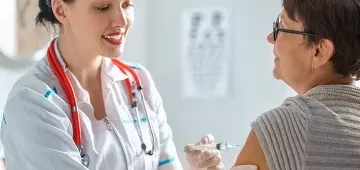A new RSPH guide has been published which provides an overview of the commissioning process aimed at providers and commissioners of health improvement services.
Following the move of public health into local authorities, the guide is intended to assist commissioners adopt strategic approaches and make the most of the opportunities presented by changes to commissioning.
The resource has been developed to enable commissioners to explore aspects of the commissioning cycle including needs assessment, strategy development and risk management. The guide will also provide valuable information to providers of health improvement services, NHS commissioners and public health professionals as well as individuals with limited experience of commissioning services.
Cllr Katie Hall, Chair of the LGA Community Wellbeing Board said: “The LGA is pleased to support the RSPH’s new commissioning guide for health improvement outcomes. It adds a clear and important voice to the challenge of improving the public’s health.” The guide has also been welcomed by Tony Vickers-Byrne, Director of HR on behalf of Public Health England.
Central to the guide is the message that health improvement commissioning needs to tackle the determinants of poor health, instead of simply focusing on providing services in isolation to the environment in which people live. It encourages commissioners to involve local people in health initiatives enabling them to contribute to their own health outcomes instead of being seen as passive recipients of services and to develop an integrated, multi-faceted approach.
Dr Nav Charna, Vice Chairman of the National Association of Primary Care (NAPC) who has also welcomed the publication of the guide said: “ it reminds us of the need to focus on health improvement outcomes when commissioning services for the patients we serve.”
Commenting on the guide Shirley Cramer CBE, Chief Executive of RSPH said: “RSPH believe in the potential of public health commissioning moving into local authorities, but also acknowledge that change is still occurring and there remain unknowns. We hope that this guide will help support the transition and ultimately, enable commissioners to make informed decisions to address health inequalities having a positive impact on the overall health of the communities that they serve.”



